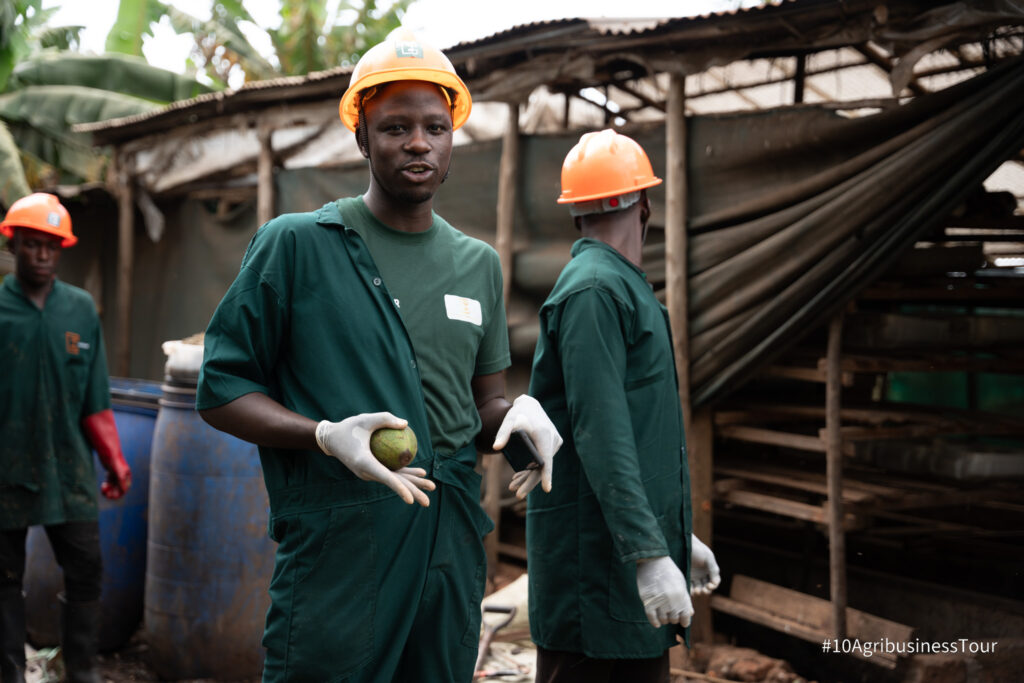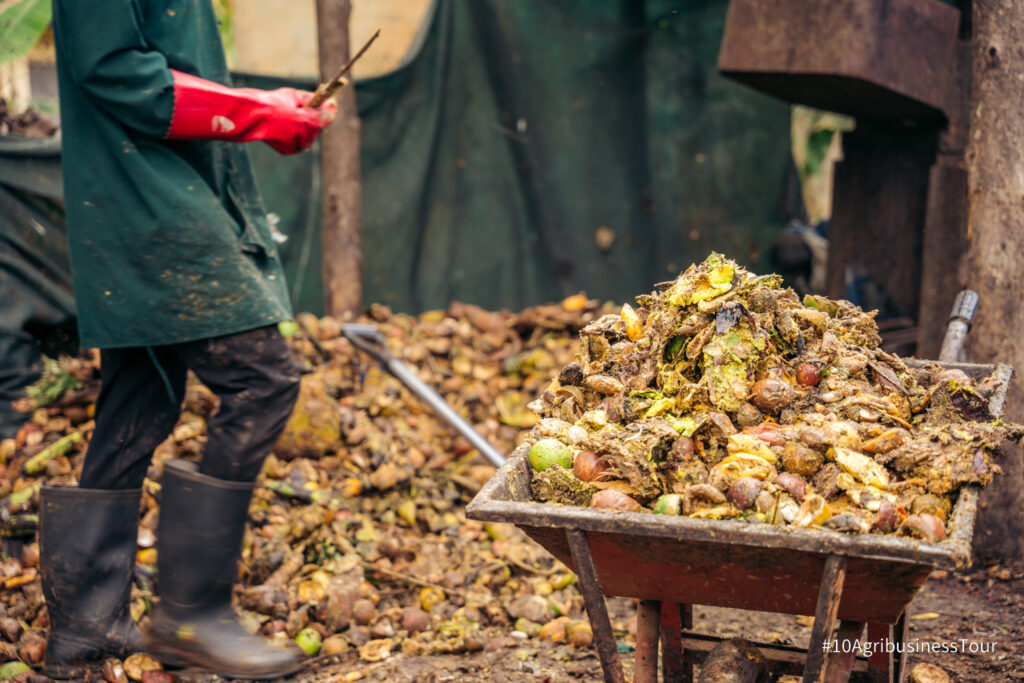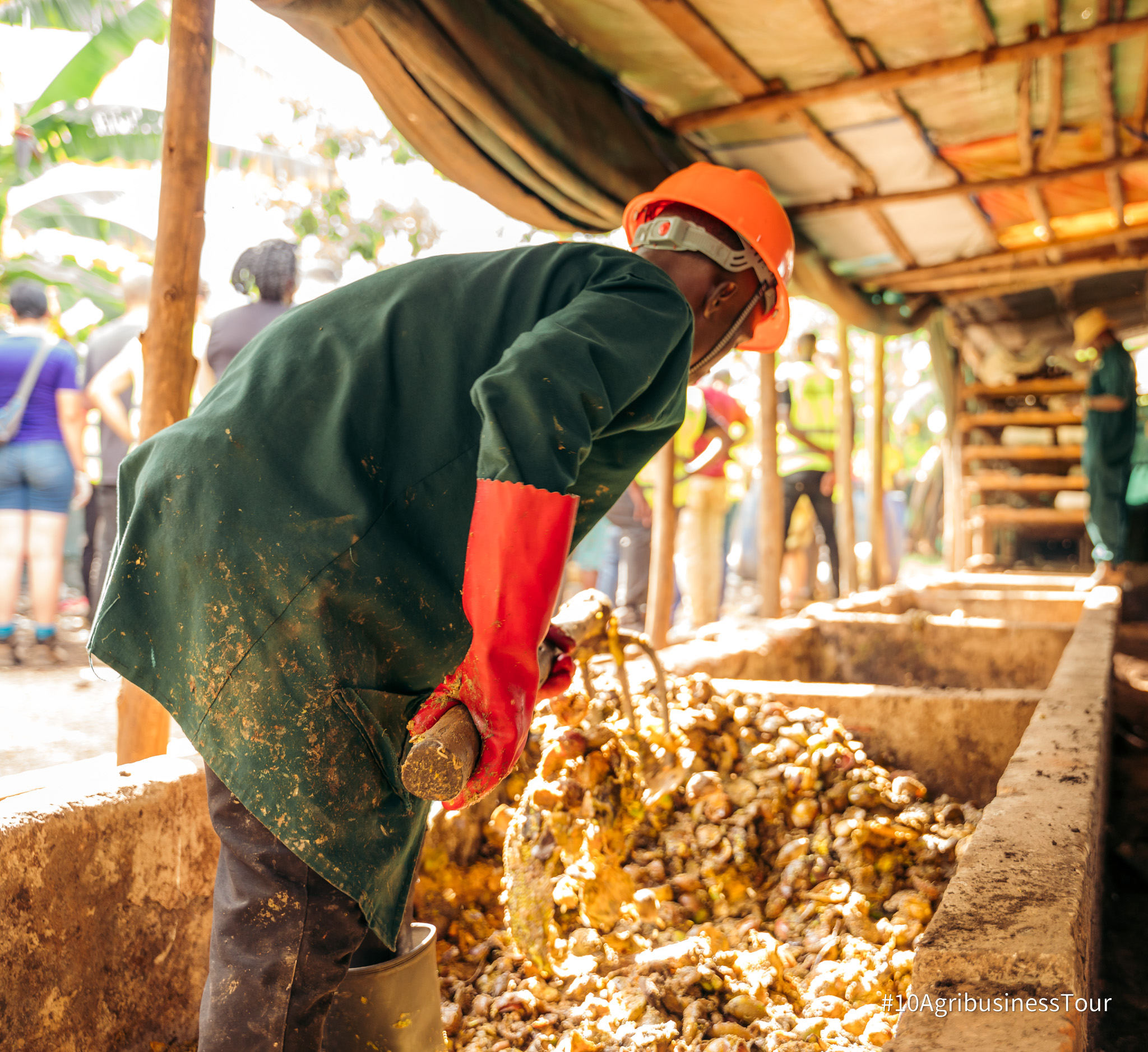As we celebrate the World Environment Day, the Young Farmers’ Federation of Uganda (UNYFA) wants to highlight the critical role that young farmers play in protecting the environment and innovations in sustainable waste management.
Agriculture is a significant contributor to Uganda’s economy, but it also has a substantial impact on the environment. As young farmers, we recognize the need to adopt practices that not only improve our yields but also protect the environment for future generations.
Many of our members have already started adopting sustainable agriculture practices such as organic farming, agroforestry, and conservation agriculture. These practices have not only improved their yields but also reduced their carbon footprint and protected biodiversity.
I would like to highlight a remarkable project by our member that is transforming household waste management in Uganda. Martin Tenywa, founder of Ento Organics Farm, Gayaza, and an alumnus of the International Young Farmers Exchange Programme, is leading the Black Soldier Fly project, an innovative and sustainable solution that reduces waste using BSF bio-technology.

The project uses black soldier flies to recycle household waste, which is then converted into larvae and used to produce organic fertilizer and animal feed. It converts 45 metric tonnes of organic waste from landfills every month to 10 Metric organic high-quality fertiliser and produces 2 tonnes of fresh larvae monthly.
This project is a game-changer for sustainable waste management, reducing greenhouse gas emissions by 70% compared to conventional methods. It also provides a sustainable solution for household waste management, creates jobs, and stimulates the local economy. This is a commendable initiative that aligns with the Sustainable Development Goals (SDGs) 6, 12, and 13, which focus on clean water, responsible consumption, and climate action.

Martin’s participation in an exchange program in Germany through UNYFA opened his mind to innovative approaches to waste management. His project is a perfect example of how international exchange programs can inspire young farmers to develop innovative solutions to environmental challenges. The programme is funded by the Federal Ministry for Economic Cooperation and Development (BMZ).
The project resonates with the National Development Plan (NDP) II’s emphasis on sustainable waste management, recognizing waste management as a critical aspect of urban development. Nationally, the National Environment Management Authority (NEMA) has initiated programs to improve waste management, including policy development, guidelines, and regulations. Parliament has attempted to intervene through the Kampala Capital City Authority (KCCA) Act, mandating effective waste management strategies.
However, challenges persist, and urgent action is required from policymakers and stakeholders. The consequences of poor waste management are dire, including environmental pollution, health risks, economic losses, and social implications.
We call upon policymakers and stakeholders to support young farmers in their efforts to promote sustainable agriculture and environmental conservation. We need policies and programs that encourage the adoption of environmentally friendly farming practices, provide access to markets and credit, and support research and development in sustainable agriculture.
Let us work together to build a sustainable future for agriculture and the environment.

